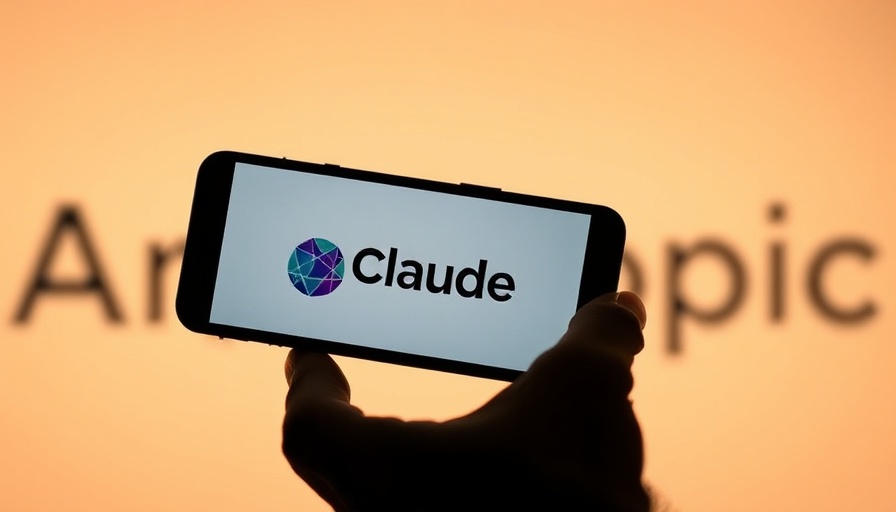
Unveiling the Power Shift in AI Chatbots
Anthropic's recent enhancement of its Claude chatbot to include web search capabilities marks a pivotal moment in the ongoing AI chatbot wars. Previously dominated by solutions such as OpenAI's ChatGPT, Google’s Gemini, and Mistral’s Le Chat, the addition propels Claude into a competitive arena where functionalities could ignite a fierce race for user engagement.
What Does the Claude Update Entail?
The web search feature, currently in preview for paid users, signifies that when utilized, Claude 3.7 Sonnet can now pull information directly from the internet. Anthropic emphasizes that this integration allows Claude to deliver citations, facilitating an easier fact-checking process for users. Instead of sifting through search results, Claude aggregates information and presents it conversationally—ideal for users needing swift, condensed insights.
Context: The Race for AI Dominance
This development comes at a time when AI chatbots are rapidly evolving, with major companies investing substantial resources into their chatbot technologies. OpenAI’s ChatGPT and Google’s Gemini emphasize diverse functionalities, whereas Mistral focuses heavily on efficiency. By integrating web browsing capabilities, Anthropic's Claude aims to outshine its rivals by placing a strong emphasis on the reliability of information.
Understanding User Experience in the Age of AI
For consumers, the real question isn't just about capabilities but about how such features enhance user experience. With Claude now incorporating web searches, user interaction becomes more intuitive. This shift represents a broader trend in AI development: the focus on enhancing human-computer collaboration. As AI seeks to be more conversational and informative, insights from users will directly shape the trajectory of these technologies.
The Future of AI Chatbots: Trends and Predictions
As chatbots like Claude gain access to vast online databases, experts predict a shift towards increased personalization and tailored dialogues. Users may no longer have to navigate the waters of cyberspace alone, as AI can customize interactions based on their inquiries. The trend suggests a continuous leveraging of AI to streamline processes across various sectors, from customer service to education.
Potential Challenges Amidst Opportunities
However, with advancements come challenges. The risk of misinformation remains a significant concern; as AI chatbots aggregate data from the web, the reliability of sources is paramount. Anthropic’s move to include citations seems a proactive measure against this issue, but how these citations are managed and presented will be crucial in establishing user trust.
Ethical Considerations and Diverse Perspectives
Innovation in AI is not without ethical implications. Concerns about data privacy, algorithmic bias, and the potential for misuse arise with every new capability. Stakeholders from diverse backgrounds must engage in discussions surrounding the ethical use of AI technology to ensure these advancements serve the collective interest rather than exacerbate inequalities.
Final Thoughts on AI's Evolution
With the introduction of web search capabilities, Anthropic’s Claude positions itself as a key player in the AI chatbot landscape. The implications are broad, signaling not only a technological advancement but also an evolution in the way humans interact with machines. As innovation continues, understanding these changes becomes ever more essential for users, developers, and policymakers alike.
Stay informed about the latest developments in AI technologies like Claude AI. Understanding these advancements can better prepare us for the digital future.
 Add Row
Add Row  Add
Add 




 Add Row
Add Row  Add
Add 

Write A Comment